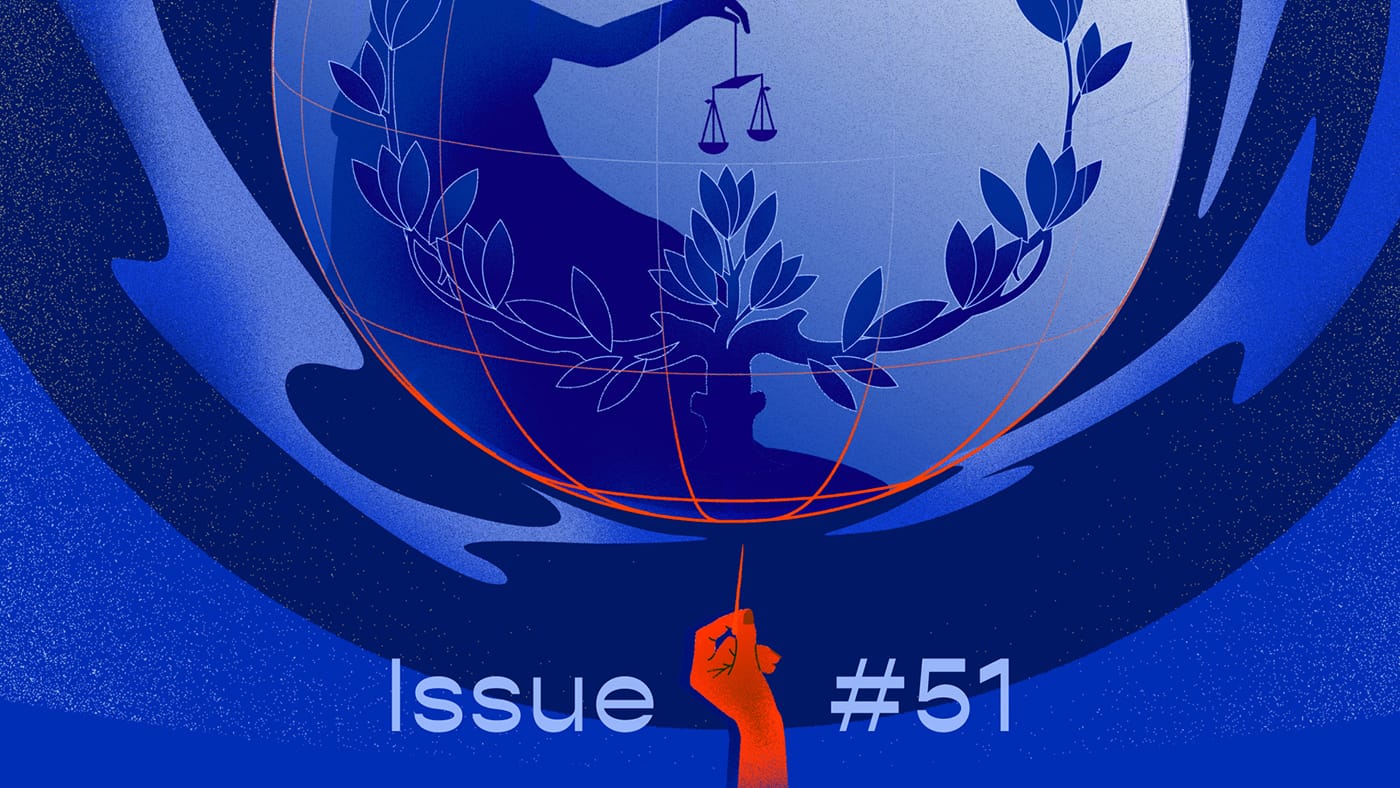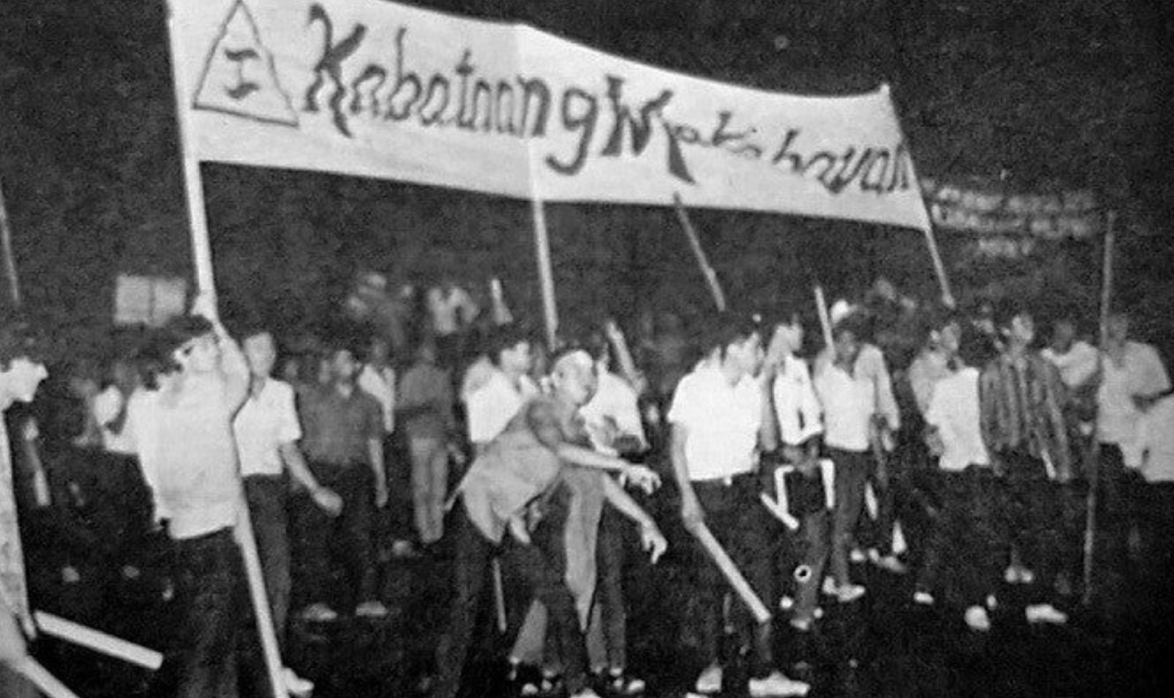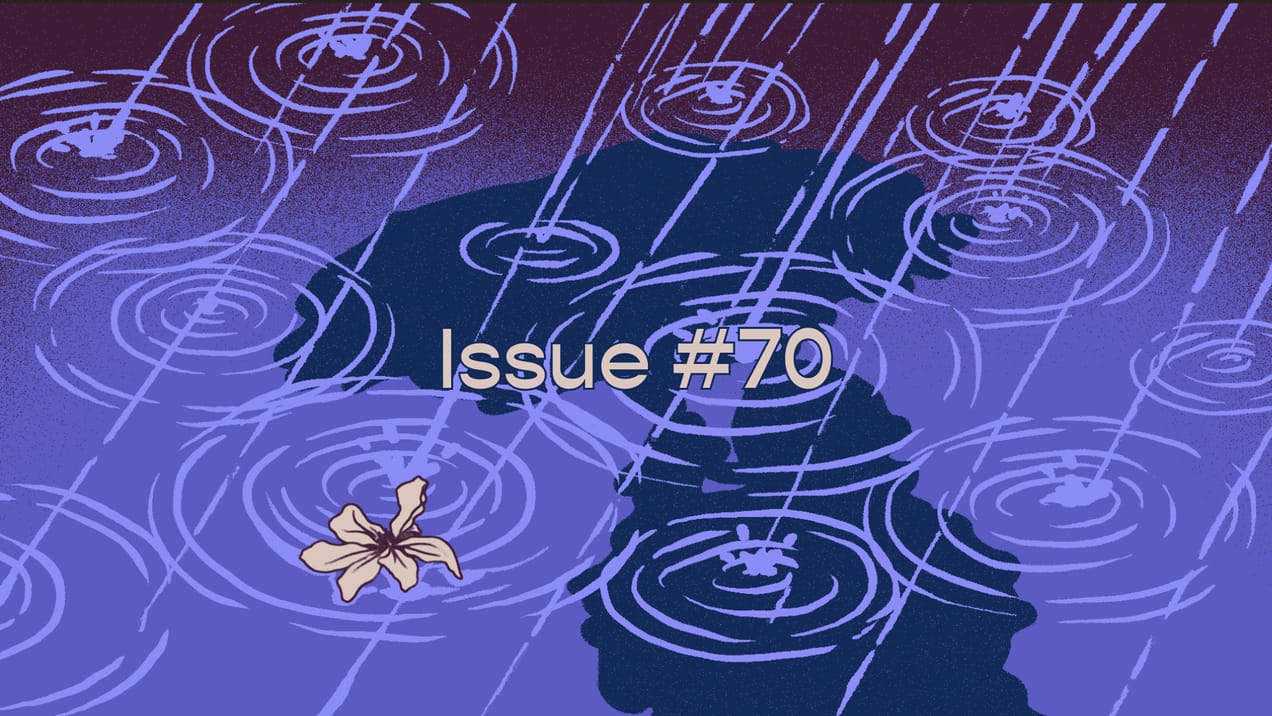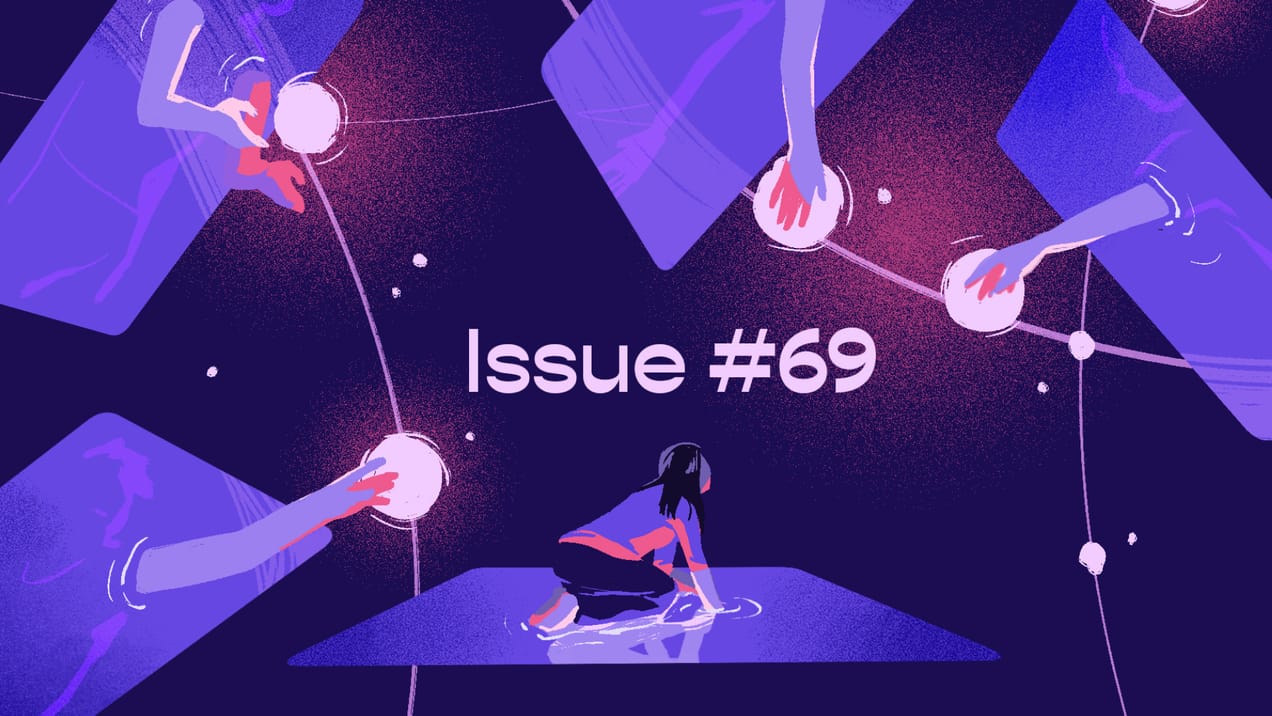
Popping our bubble of convenience — issue #51
Last April, I met a Ukrainian journalist at the International Journalism Festival in Perugia, Italy. I thought my near-20 hours of commute to Rome was long, but she had travelled 24 hours to be there despite hailing from the same continent. What struck me was her steadfastness. Despite how disrupted life has been for her, she stressed the importance of staying in Ukraine to contribute to the economy as the war rages on.
As a privileged Singaporean who’s lived a life of comfort and convenience, I found her resolve and determination to show solidarity despite hardship admirable. Kontinentalist is a mostly Singaporean team, and we are aware of how Singaporeans are notorious for their “none of my business” mindset. We’re quite happy to live in our little bubble, and are often averse to news of atrocities elsewhere because it makes us uncomfortable. This is especially so when we’re told that Singapore might be complicit in said atrocities, like when the UN Special Rapporteur reported that our country is entangled with Myanmar’s junta with up to US$254 million worth of weapons and supplies.
I’ve spent the past five months pursuing a Master’s degree in Data, Inequality, and Society at the University of Edinburgh as a Chevening scholar under the UK Foreign, Commonwealth and Development Office. The genocide in Gaza has left me conflicted about my relationship with colonialism and empires while I try to stand in solidarity with Palestinians.
But Scotland has been eye-opening and revelatory—the Scottish First Minister, Humza Yousaf, has been pro-ceasefire and pro-Palestine since day one of the war. With my classmates and friends, there’s no need to caveat my support and sympathy. There is no shame in expressing one’s political opinion—protests, strikes, and dialogues occur around me on the regular. One can be loudly, and proudly, pro-Palestine.
My time here has taught me that solidarity rightfully comes at a price. The point of strikes and protests is to stage inconvenience, force people to sit up and listen, and push them into action. In our previous issue, my colleague Zafirah wrote about her thoughts on the BDS movement. We received some pushback from our readers: Why Palestine over other conflicts? We also received criticism that singling out Starbucks while still using our iPhones is hypocritical talk.
The genocide in Palestine has exposed the veneer of hypocrisy that has shrouded how we perceive and understand problems that plague the world. Talking about not having a toffee nut latte can feel cheap and hollow, but we all need to start somewhere. These whataboutisms ignore how systems connect and operate in ways beyond an individual’s choice and control. To suggest that it must be done cohesively and comprehensively is to put ourselves into a gridlock and paralysis that disables any action from happening. Our ultimate goal was to communicate that solidarity can come in all shapes and forms.
When I was younger, my mother ran a mamak shop, or local convenience store, in Yishun Ring Road, Singapore. We lived in a thriving community—my mother remembered the names and stories of people all over the neighbourhood, and would sometimes deliver orders to their homes. But the business became financially untenable when a supermarket opened up at the nearby train station when I was in my teens. A Scottish taxi driver recently echoed the same sentiment, lamenting how the opening of a big Costco had a similar effect in his town. Gone are the small grocery stores and the networks of kinship that held the community together.
These things creep up on us. They take over slowly but surely, and before we know it, we’re swept up in a web of complicity that thrives off suppressed wages, oppression, and occupation. But we can unravel this web, and rebuild our ties with local communities, by starting with awareness, intentionality, and resistance. Boycott is a big word, but it need not be. It is about living with a little inconvenience.
As one of our readers pointed out, we always try to dig a little deeper at Kontinentalist. We don’t simply want to “call out” things we feel are wrong. These past few years, we’ve done our best to shed light on various forms of injustice and inspire our readers to take action by using reason, evidence, and data. This has ranged from talking about the lack of migrant worker rights in Singapore, to highlighting the plight of Rohingya refugees abandoned at sea. But we’re constantly learning alongside our readers, and increasingly realising that there’s still so much we don’t know.
As a society, we’re so reliant on mainstream media to keep us informed that we don’t realise how much escapes our attention. That’s why it’s essential to pay attention to the work of local and grassroots reporters who bring us stories from their communities—such as our latest piece on enforced disappearances in Balochistan, Pakistan.

BTS

Our latest story, written by freelance journalist Somaiyah Hafeez, highlights the silent epidemic of enforced disappearances in the marginalised province of Balochistan. While such disappearances are a stealthy, routine occurrence across Pakistan, they are particularly common in the province. In this BTS, we are granted an inside look at how the story was created, which includes Somaiyah’s experience as a local reporter covering this issue, and how she worked with our writer Zafirah to tell the story behind the numbers.
more from us...
Enforced disappearances are not unique to Pakistan. In Mexico, families wander across scarred landscapes in search of the disappeared.
Seed-saving is an age-old tradition, but it is being erased by corporate greed. How have Asia’s farmers fought back?
Meet the community

What does it mean to be a social media-first organisation, and how is writing a form of meaning-making? JP Campos, founder of Media Commoner and multimedia executive producer at a Manila-based film production agency, shares lessons from his journey in pushing the boundaries of traditional storytelling and contemplates the evolving responsibilities of storytellers in the era of artificial intelligence.
Stuff we love
↗ Where can you protest safely? Amnesty International’s Protect the Protest Map documents human rights concerns related to the right to peaceful protest across the globe.
↗ In “What is missing?” renowned artist Maya Lin builds a rich history of our planet and collective memorial of our relationships with the natural world.
Did you know?
Filipino students’ refusal to be complicit in the Vietnam war

With roots in the anti-colonial movement against the Spanish in the 1800s, student activism in the Philippines rose again in the late 1960s. Inspired by Claro M. Recto, the Filipino statesman who objected to American neocolonialism after the country’s independence, students called for social reforms and protested the ongoing Vietnam War. At that time, the United States was using its military bases in the Philippines to stage attacks in Vietnam. The students opposed sending combat troops and other forms of military aid to South Vietnamese forces.
As the anti-war movement grew worldwide, students conducted protest rallies and teach-ins on the Philippines’ involvement in the war. In 1967, students were forcibly dispersed and arrested by the police for protesting the arrival of US President Lyndon B. Johnson.




